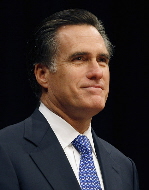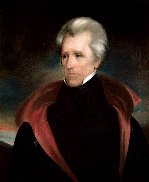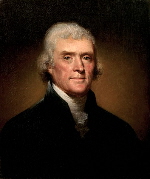Experienced ‘Outsiders’: Do Ex-Elected Officials Make the Strongest Presidential Challengers?
Incumbent presidents have won only 50 percent of elections against former elected officeholders over the last 220 years, compared to 76 percent against sitting elected officials and those never elected to political office

That trend might change in 2012.
Of the nearly 20 names that are currently being bandied about as potential 2012 Republican presidential candidates, the vast majority are politicians who are no longer serving in elected office: Sarah Palin, Mitt Romney, Mike Huckabee, Tim Pawlenty, Newt Gingrich, Haley Barbour, Rick Santorum, Rudy Giuliani, George Pataki, and John Huntsman.
All of these potential candidates left their last elected post – from a month to more than a decade ago – as a result of either not seeking an additional term in office, resigning from their position, or losing at the ballot box.
That list of candidates dwarfs the names of those rumored potential GOP presidential candidates who are currently serving in elected office: U.S. Senators John Thune (SD) and Jim DeMint (SC), U.S. Representatives Michele Bachmann (MN-06) and Ron Paul (TX-14), and Governors Mitch Daniels (IN), Rick Perry (TX), and Bobby Jindal (LA).
The deep bench of ex-elected officials exploring the possibility of a presidential run might be good news for Republicans if history has anything to say about the 2012 election.
A Smart Politics study finds former elected officials have defeated presidential incumbents 50 percent of the time – in six of 12 elections – while presidents have cruised to victory 76 percent of the time against elected officials currently holding office and candidates who have never been elected (13 of 17).
To be sure, presidents have largely been successful when running for reelection across U.S. history – winning 21 contests overall and losing just 10, or a 68 percent success rate over the last 220 years.
From time to time, however, the electorate is discontented enough with the direction of the country and is willing to consider a change in executive leadership.
During those cycles, voters have demonstrated a greater willingness to replace the president with “experienced outsiders” – candidates who had previously served in elected office but are not currently in power (and thus not part of the failing ‘system’) – rather than challengers currently serving in elected office or those inexperienced candidates who had never been elected to political office.
While former elected officials have knocked the president out of office half the time (six wins, six losses), sitting elected officials have done so just 31 percent of the time (four wins, nine defeats) and true political outsiders have never accomplished that feat (zero wins, four losses).
(Two incumbents never faced an opponent early in the country’s political history: George Washington in 1792 and James Madison in 1820).
Former elected officials who have defeated sitting presidents include two recent examples and four from the 19th Century.

· In 1840, Whig William Harrison beat incumbent Democrat Martin Van Buren, some 12 years since Harrison last held elected office (as Senator from Ohio).
· In 1888, Republican Benjamin Harrison defeated Democratic incumbent Grover Cleveland – two years after his one-term stint in the U.S. Senate.
· Four years after his defeat, Cleveland returned to beat President Harrison in 1892.
· Jimmy Carter closed the chapter on his gubernatorial career in 1975 – nearly two years before he defeated Gerald Ford in the Election of 1976.
· It had been more than five years since Ronald Reagan was Governor of California when he soundly defeated Jimmy Carter in 1980.
Against these six defeats, presidents have prevailed six times against ex-elected officials, in 1872 with Ulysses Grant (over former US Representative Horace Greeley), in 1900 with William McKinley (beating former US Representative William Jennings Bryan), in 1916 with Woodrow Wilson (over former New York Governor Charles Hughes), in 1924 with Calvin Coolidge (defeating former Congressman John Davis), in 1956 with Dwight Eisenhower (over former Illinois Governor Adlai Stevenson), and in 1984 with Ronald Reagan (over former Vice President Walter Mondale).
Presidents have had a much easier time defeating challengers who launched their campaigns while still holding another elected office, winning the Elections of 1812, 1832, 1936, 1944, 1948, 1964, 1972, 1996, and 2004.

Incumbents are undefeated during the four cycles in which they were challenged by candidates who had never previously been elected to political office: Thomas Jefferson against Charles Pickney in 1804, Abraham Lincoln versus George McClellan in 1864, Teddy Roosevelt against Alton Parker in 1904, and Franklin Roosevelt over William Willkie in 1940.
Presidential nominees who had never previously held elected office have had some success in winning open seat races, however, taking the White House in 1848 (with Zachary Taylor over former Senator Lewis Cass), 1868 (with Ulysses Grant beating former New York Governor Horatio Seymour), 1908 (with William Howard Taft defeating former U.S. Representative William Jennings Bryan), 1928 (with Herbert Hoover beating New York Governor Al Smith), and 1952 (with Dwight Eisenhower over Illinois Governor Adlai Stevenson).
Presidential Incumbent Success by Elected Office Experience of Challenger
|
Challenger experience*
|
Won
|
Lost
|
% Won
|
|
Former elected officeholder
|
6
|
6
|
50.0
|
|
Current elected officeholder
|
9
|
4
|
69.2
|
|
Never held elected office
|
4
|
0
|
100.0
|
|
No opposition
|
2
|
0
|
100.0
|
|
Total
|
21
|
10
|
67.7
|
* The status of the most successful challenger was used for calculations in elections in which multiple challengers carried states (1824, 1832, 1836, 1856, 1860, 1892, 1924, 1948, and 1968) with the exception of 1912, in which incumbent William Howard Taft was recorded even though third party candidate Teddy Roosevelt received the second most electoral votes. Data compiled by Smart Politics.
Follow Smart Politics on Twitter.
